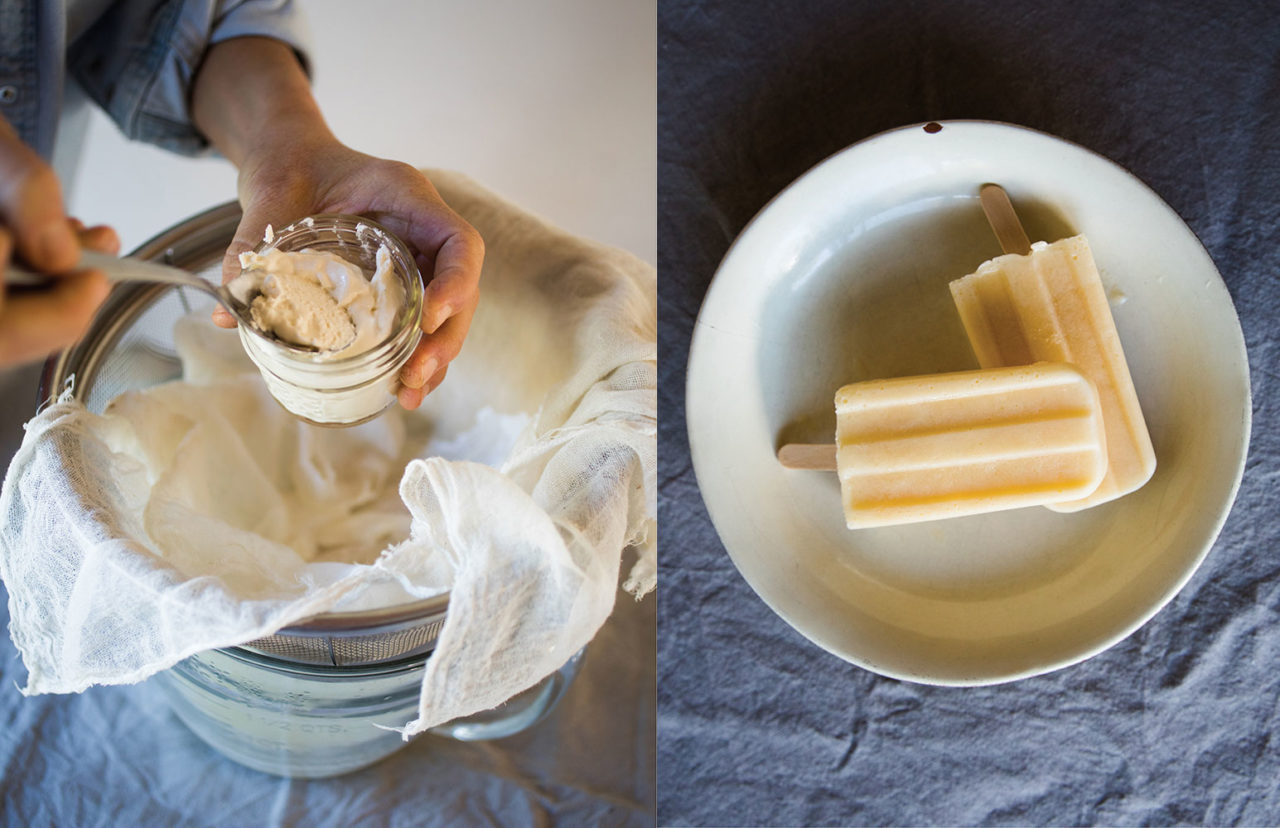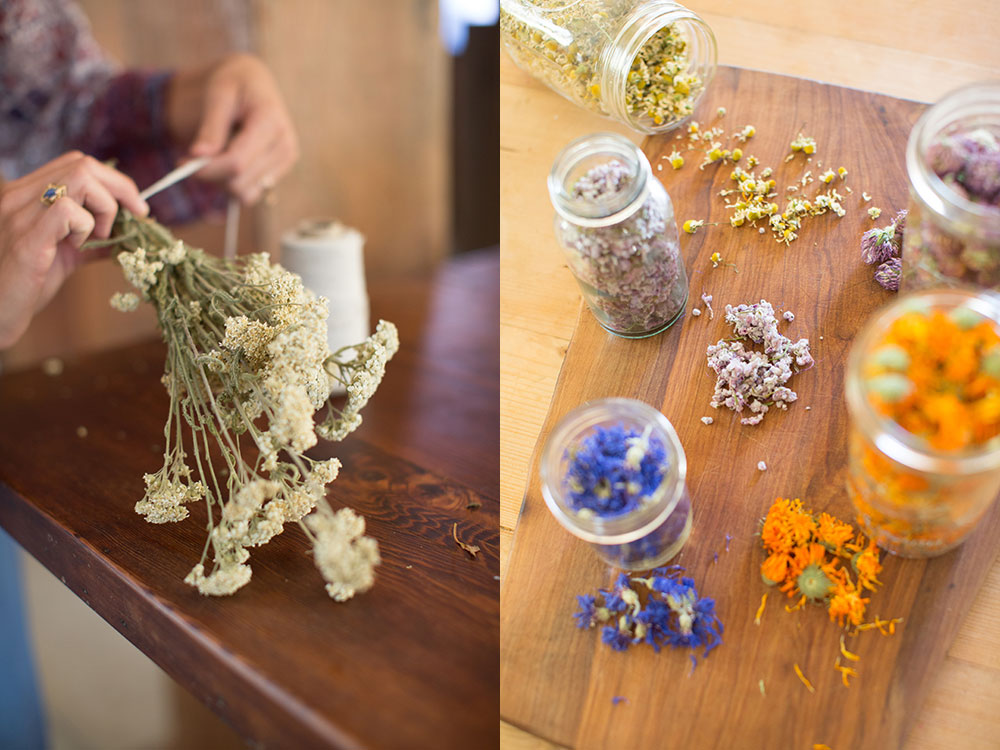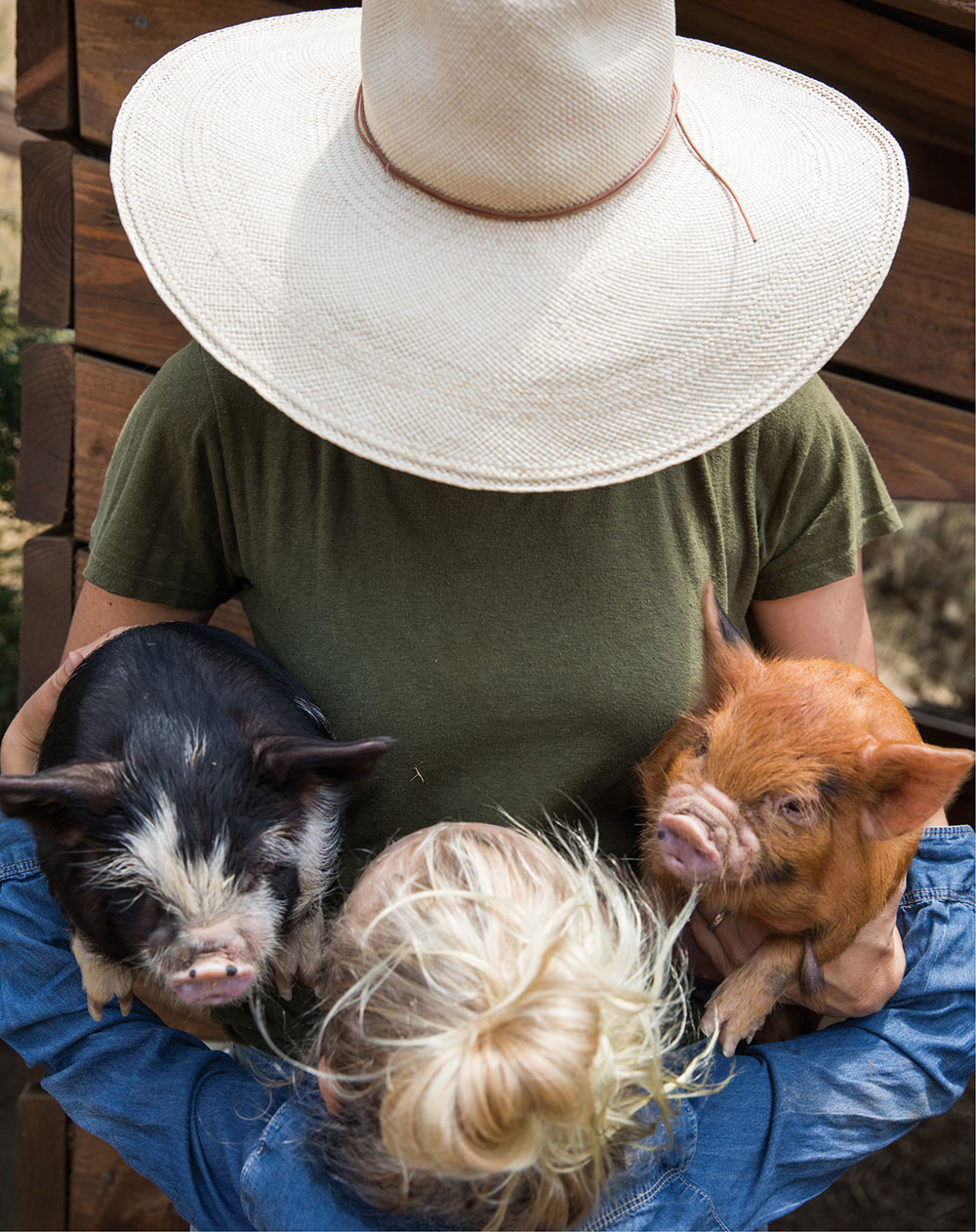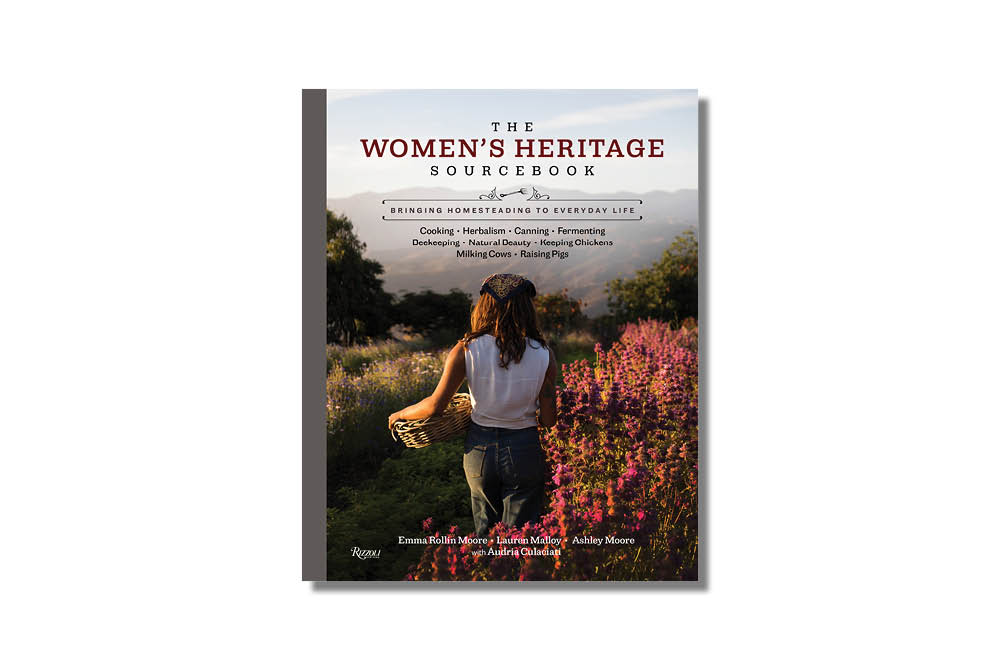Sourdough, chickens and herbal tinctures — could the new Women’s Heritage Sourcebook be any timelier?
Words by MELISSA GOLDSTEIN
Baking sourdough bread, raising chickens and making essential oil-scented homemade soap may be trending hobbies in our current stay-at-home existence, but for Santa Barbara-based trio Emma Rollin Moore, Lauren Malloy and Ashley Moore, it’s long been a way of life. The women, who first connected through their children, came up with the idea for their brand, Women’s Heritage, after a family trip to the high Sierras, where they compared notes on their tactile hobbies: Rollin Moore is a home cook with a penchant for pickling, fermenting and preserving; Malloy is an animal lover whose brood includes horses, pigs and cows; and Moore is an herbalist, crafting everything from tinctures to beauty products.
Their shared philosophy sparked an online journal, a workshop series, a Carpinteria country store called Heritage Goods and Supply, and now a nearly 400-page recipe-, tip- and photo-filled book — The Women’s Heritage Sourcebook: Bringing Homesteading to Everyday Life (Rizzoli, $35). The title is ideally timed to illuminate us on the ins and outs of everything from the art of a well-curated edible flower salad and how to lacto-ferment ketchup, to the difference between Buff Orpington hens and Rhode Island Reds, to recipes for make-your-own toothpaste (hint: don’t forget the French clay). It also features experts in each discipline, including co-founder of fermented alcohol brand the Apiary, Rachna Hailey, and beekeeper Nicole Ulabarri who runs Morris Honey. We spoke to the women about applying their way of life to today’s challenging times.
Do you find people are more interested than ever in your homesteading philosophy in light of what is happening in the world?
Emma Rollin Moore: We definitely can see that during the current state of affairs, when our freedom to access food is threatened, it encourages people to think about how and where they get their food from. The homesteading philosophy centers around self-reliance and sustainability. So knowing where our food comes from, how to grow food that leaves a lighter footprint on the land, as well as how to cook and preserve food.
Any advice for making bread that doesn’t require yeast or the usual flour?
Rollin Moore: These days flour can be hard to come by. But, in Santa Barbara we can find it occasionally at the grocery store and other local businesses have started to stock it as well. The great thing about making and baking sourdough bread is that you only need flour, water, sea salt and a starter. The starter can be created on your own or you can inherit from a friend. If traditional bread flour and AP flour is hard to come by, you can always create your own flours by grinding oats to make oat flour and brown rice to make rice flour and create a gluten-free sourdough.
With most pantries not fully stocked, what is the easiest recipe to incorporate into our lives?
Rollin Moore: Soups or stews that can incorporate a variety of ingredients like beans and/or pasta or rice and canned tomatoes, veggies and so on. One of my go-to recipes is taking two cans of white beans and cooking them with 1/4 cup olive oil, fresh thyme, garlic and a cup of veggie or chicken stock or water and salt and pepper to taste. Serve with crusty sourdough bread and a salad, and you’ve got a quick and easy dinner.
What herbal remedy do you recommend for boosting immune systems?
Ashley Moore: Sometimes there is confusion between immune-boosting and immune-building. For boosting immune systems, our family loves fire cider and elderberry syrup. We also take echinacea root as a tincture. Immune-building herbs are also important, and I love that herbal medicine is largely preventative. There are lots of herbs that help build immunity, that can be taken throughout the year, such as ginseng and astragalus. Ginseng I prepare either as a decoction, by simmering the root, or I make it as a tincture. I slice up the root and put it in a jar, then pour vodka or brandy over the top to cover. After four weeks, the tincture is ready. I generally make a second batch with the same roots and leave it for a few months. Astragalus we take as an elixir — a tincture made with alcohol and honey. That is a favorite for the children in our family.
Love the gin recipe in the book — any other cocktail tips or tricks?
Moore: A favorite trick of mine is giving drinks some fun color. We especially love black pansies for the deep purple they bring to drinks. I pick fresh pansies, pour vodka or gin over them, and let them sit for a while until the alcohol picks up the color. I use a good tonic water with the purple alcohol and pop a sprig of fresh rosemary on top for a garnish. Simple and a little magical at the same time!
It might seem like a good time to start raising chickens or other animals. What are your thoughts on diving into that?
Lauren Malloy: Chickens make wonderful pets and are an important part of a permaculture property. We give them love, nutritious food, fresh water, shelter and space to scratch and peck. They in turn provide us with fresh eggs, eat the weeds around the fruit trees and garden bread, and gobble up many of our garden pests. And their manure even fertilizes the fruit trees! I would encourage anyone interested in keeping chickens or any other pet to do some research first — there is lots of great information on this in our book — and consider if a small flock would be a good addition to her life.
What lifestyle changes do you hope people make once we are through this?
Moore: We all saw how vulnerable our supply chains are during this pandemic. We have been a society based on consumption instead of making. Our hope is that folks start to feel inspired to learn how to make or do things they had never considered before Covid-19, like making their own bread or shampoo or keeping chickens. Even learning and understanding the process of how things are made can be so empowering. If you find you don’t want to make your own soap, for example, doing it once or even reading about it connects you to the process and ingredients and will hopefully help influence your consumer decisions the next time you go to purchase soap. The goal of our sourcebook is, no matter where or how you live, to consider finding the small things that inspire a more sustainable, connected life.
Has this situation changed any of your own habits?
Malloy: This situation has definitely made us take a step back and rethink our daily lives, rhythms, consumption and values. We are inspired to have less waste, only take what we need and use what we already have. Though this was always a goal for us before Covid-19, it now seems more important than before to live by this ethos and to really teach it to the next generation. We wholeheartedly hope our book inspires folks to find lessons in the process of learning. Whether you are in an apartment in New York or on a farm trying something new, finding new passions and becoming more sustainable and aware are the direction we hope these dark times bring to light.
Feature image: All photos from The Women’s Heritage Sourcebook: Bringing Homesteading to Everyday Life (Rizzoli, $35). All photos by Lauren Ross.
May 6, 2020
Discover more CULTURE news.









